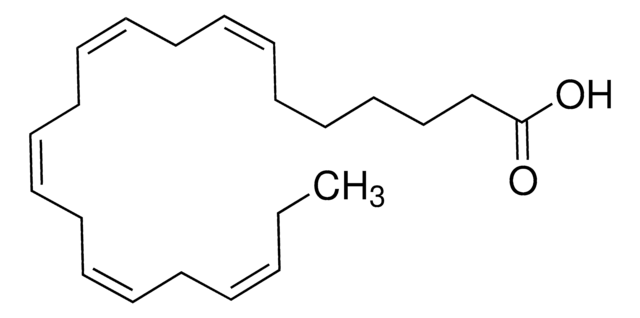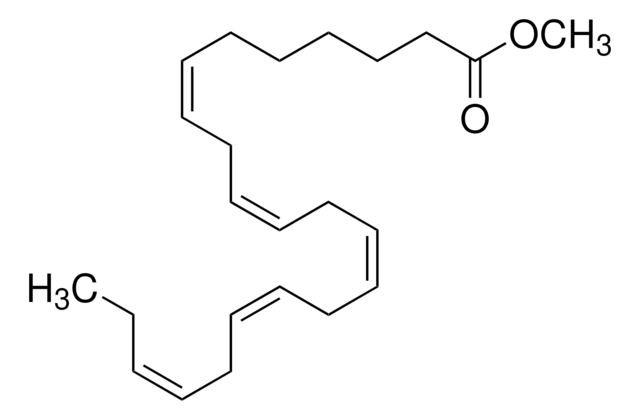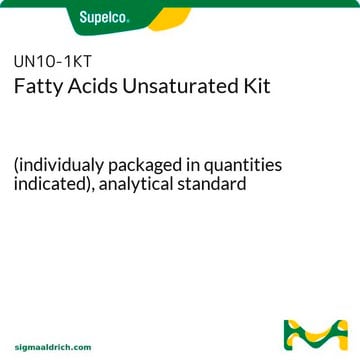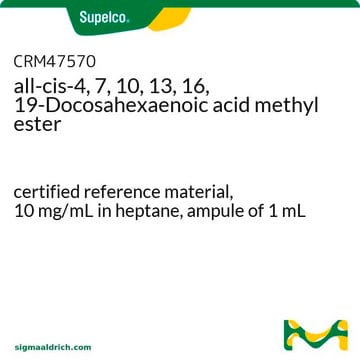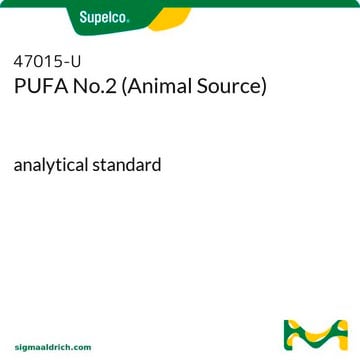18566
all-cis-4,7,10,13,16-Docosapentaenoic acid
analytical standard
Synonyme(s) :
(4Z,7Z,10Z,13Z,16Z)-4,7,10,13,16-Docosapentaenoic acid, (all-Z)-4,7,10,13,16-Docosapentaenoic acid, Osbond acid
About This Item
Produits recommandés
Source biologique
synthetic
Niveau de qualité
Qualité
analytical standard
Description
C22:5n6
Pureté
≥98.0% (GC)
Durée de conservation
limited shelf life, expiry date on the label
Technique(s)
HPLC: suitable
gas chromatography (GC): suitable
Application(s)
food and beverages
Format
neat
Groupe fonctionnel
carboxylic acid
Température de stockage
−20°C
Chaîne SMILES
OC(CC/C=C\C/C=C\C/C=C\C/C=C\C/C=C\CCCCC)=O
InChI
1S/C22H34O2/c1-2-3-4-5-6-7-8-9-10-11-12-13-14-15-16-17-18-19-20-21-22(23)24/h6-7,9-10,12-13,15-16,18-19H,2-5,8,11,14,17,20-21H2,1H3,(H,23,24)/b7-6-,10-9-,13-12-,16-15-,19-18-
Clé InChI
AVKOENOBFIYBSA-WMPRHZDHSA-N
Catégories apparentées
Description générale
Application
Conditionnement
Produits recommandés
Code de la classe de stockage
10 - Combustible liquids
Classe de danger pour l'eau (WGK)
WGK 3
Point d'éclair (°F)
Not applicable
Point d'éclair (°C)
Not applicable
Équipement de protection individuelle
Eyeshields, Gloves, type N95 (US)
Faites votre choix parmi les versions les plus récentes :
Déjà en possession de ce produit ?
Retrouvez la documentation relative aux produits que vous avez récemment achetés dans la Bibliothèque de documents.
Les clients ont également consulté
Notre équipe de scientifiques dispose d'une expérience dans tous les secteurs de la recherche, notamment en sciences de la vie, science des matériaux, synthèse chimique, chromatographie, analyse et dans de nombreux autres domaines..
Contacter notre Service technique